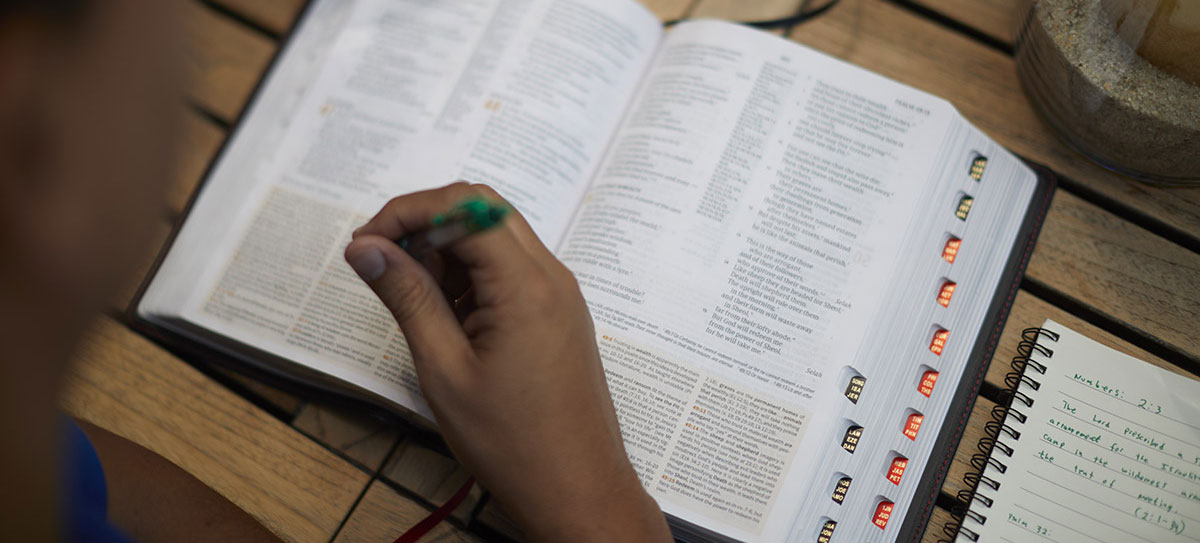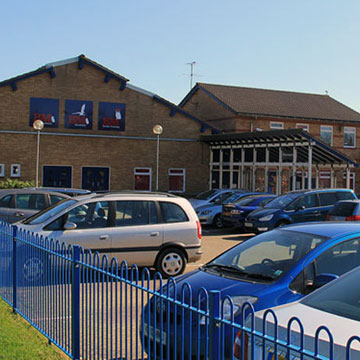Plan to Read Your Bible
- Details
- Published: Wednesday, 02 January 2019 01:11
- Written by James Dean

It shouldn't come as a surprise to us that the key to both deepening and maintaining our relationship with God is found in reading his word. The Bible is God's message to us, his people. It's our primary source of truth and understanding about who God is, what he has done and of our own identity in him.
It also shouldn't then be surprising that we find reading the Bible difficult. Why would our enemy want to make it easy for us to be equipped for doing God's work? He will provide every distraction possible to make us as ineffective as possible. So plan ahead! These tips will make a huge difference in how you approach your Bible reading.
If you're someone who is always busy and struggles to read because you think it will take too much time, think again. The article below from Crossway shows exactly how long it takes to read each book of the Bible and includes suggestions for which books to read given a set amount of time. Be strategic!
It is telling that at a time when the church in China (and many other places) is facing renewed persecution and restrictions on even buying a Bible we take access to our Bibles for granted and don't make time to read them. I wonder how we would cope if our government were to take away our Bibles?

Great advice here from the CSB:
God's Word is "living and effective"—when we read the Bible, our hearts, our lives, and our relationships are transformed. But how do we go from wishing for more time in God's Word to actually reading God's Word more? Here are 4 suggestions for reading the Bible more in 2019:
1. Set A Time and Place
With our other priorities, we know we need to make a plan for them to happen—but sometimes it's easy to skip that step for Bible reading. Planning a specific time helps to make reading the Bible a regular habit, and so does finding a comfortable, quiet spot with your Bible, your pens or highlighters, and some good lighting.
2. Put Scripture Where You'll See It
During some seasons of life, long quiet times just aren't realistic. And even if you do have time to regular devotions, we can all benefit from little reminders of truth. Tape index cards with verses to your bathroom mirror or your kitchen cabinets, or find a desktop or phone background with a verse you want to memorize.
3. Pick a Reading Plan
What kind of reading plan is best? The one you're going to finish. If you get behind, it's okay, just pick up where you left off. Or just do five minutes for the first month of the year and pray, "Lord, make this a delight to me."
If you read through the Bible in a year last year, try slowing down and focusing on one book for several months. Or experience the Bible in chronological order with the CSB Day-by-Day Chronological Bible, designed to help you see how the stories of the Bible fit together into a single grand narrative of God's redemptive plan.
4. Find Your People
Does sticking to a plan sound intimidating? Have you tried it before and failed? People can make an impossible plan possible. Grab a couple friends and commit to a plan together.

There are lots of methods and plans available to help you. Bible reading plans like these from Ligonier and Crossway can help you break up your reading by taking a few chapters from different books to read each day. Free apps for your smartphone like YouView are brilliant at keeping track of where you're up to and reminding you each day to keep up your reading.
At some point you may have tried starting at Genesis and reading straight through to Revelation. While not impossible, this is a tough one even for the most mature believer. However, don't give up. However, why not start with a Bible overview instead. "By reading these books, a student can get a basic feel for and understanding of the scope of the Bible without getting bogged down in the more difficult sections. From there, he or she can fill in the gaps to complete the reading of the entire Bible."
Even with all the above, it's very easy to miss a day or two and then feel like a failure and give up. The best advice I can give you is don't... to just continue from where you left off.
Even better - have you thought about reading along with someone else? You could encourage each other by sending text messages asking questions about what you've read. Why not arrange a time to meet each week over a coffee or cuppa and talk about your favourite verses and how they've helped you?

If someone observed an average day in your life, how would they see you spend your time? How much of your time is given to TV, Facebook, YouTube, podcasts, hobbies, and housework? How much time do you devote to Bible reading?
In August 2018, we [Crossway] surveyed over 11,000 readers, asking questions about how much time they spend doing some of the things mentioned above. We then compared those responses with the average amount of time it takes to read various portions of Scripture.
See what we discovered in our infographic.
What is the takeaway?
Do you have a spare 5 minutes in your day? Take up and read the book of Jude or maybe even Obadiah. Do you have 15 minutes? Read Ruth or Philippians. Do you have an hour? Immerse yourself in Nehemiah or Romans.
Read the full article from Crossway and discover for yourself that you have more time for Bible reading than you think. It will be time well spent!

Finally, watch out for more details of our Life Groups in the next few weeks.
We've been running these for a year now (and home groups before that) but we're going to take the opportunity to relaunch in January with a renewed focus on growing together as we read God's word and apply what we read to how we live.









